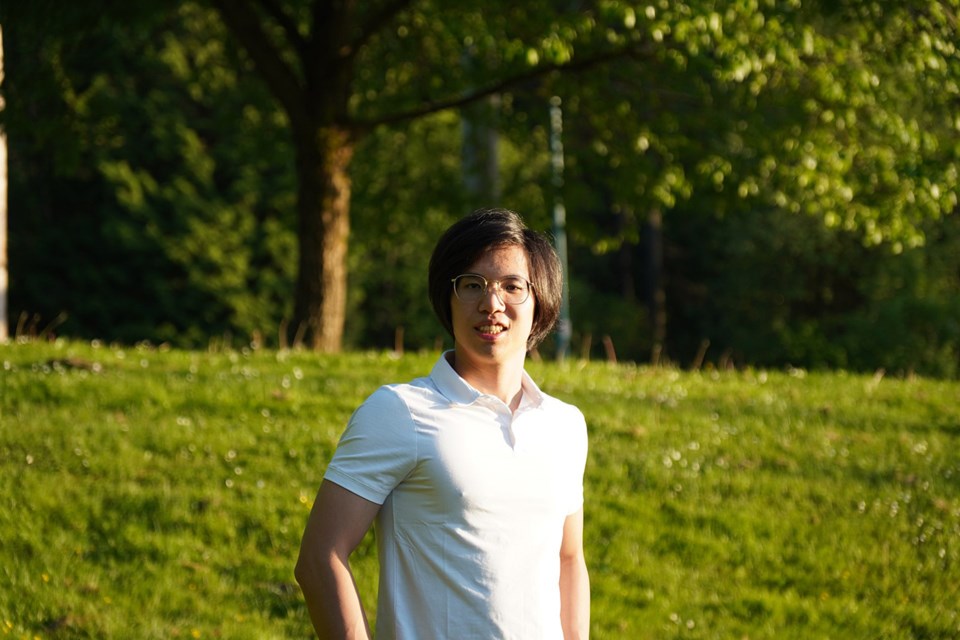Yi Yi Du doesn't remember exactly what happened around the time of his accident.
A graduate of Coquitlam's Dr. Charles Best Secondary, Du was riding his longboard to get back home after a late lecture at UBC when he skated across an off-campus crosswalk.
A bus stopped for him; however, a vehicle beside it didn't see Du and struck him.
Du, who had just started his final year as a mechanical engineering undergrad, was rushed to Vancouver General Hospital where he stayed for three months — two of them in a coma.
Then came another three months as an in-patient at G.F. Strong Rehabilitation Centre to help recover from his traumatic brain injury (TBI) before five months as an out-patient.
Today, Du sees a neurologist three or four times a year to check on his progress — an advancement that's been nothing short of remarkable for the now 24-year-old man.
Tomorrow (May 31), about a year-and-a-half after an accident that nearly took his life in 2021, Du will walk on stage at UBC to accept his diploma with the highest grades possible.
And, this September, he'll start a PhD program at Stanford University in California, where he hopes to develop technologies to help others with TBI.
It's work that he knows will go to good use: Each year in Canada, there are more than 165,000 new cases of TBI; in the United States, it's more than double that statistic.
In a Zoom interview with the Tri-City News today (May 30), Du said his undergraduate research — ironically — was already focused on mild TBI.
He had taken a course and lab work at UBC (MECH 466) that looked at control theories and systems to prevent brain injuries.
That work "was very worthwhile because it directly impacted people in need," said Du, who immigrated to Canada from China with his family at the age of 12.
But after his vehicle accident, Du was forced to put his research on the shelf.
During his recovery, he thought the grim realities for people with TBI (one-fifth don't live) and was determined to beat the odds. In fact, he yearned to finish his bachelor's degree.
"I thought, 'If I don’t do it then everything that I’ve done is for nothing,'" he said.
Now, with his undergrad studies behind him and graduate work on the horizon, Du said he hopes to get back to his love for outdoor recreation once his energy levels normalize.
An avid hiker, he has climbed most of B.C.’s mountains and, one day, he plans to walk the 4,270-km Pacific Crest National Scenic Trail, along the coast from Canada to Mexico.
He also plans to get back into road cycling — a sport introduced to him by a friend — and relaunch the sea kayak that’s been sitting under his deck at home since the accident.
What has he learned about having TBI? he's asked. Du breaks it down into three parts:
- You must have perseverance
- You must have a good support system
- You must be ready to sacrifice
"Because of the accident, I don’t have a lot of energy during the day," he said. "I don't have the luxury of doing a lot of stuff. I sacrifice to prioritize."
Still, most importantly, you can’t get discouraged, he advised.
"Sometimes, there might be a downward slope to your recovery. Occasionally, there will be an obstacle....but you’re still on an upward trend. You need to see the big picture for life to happen."





